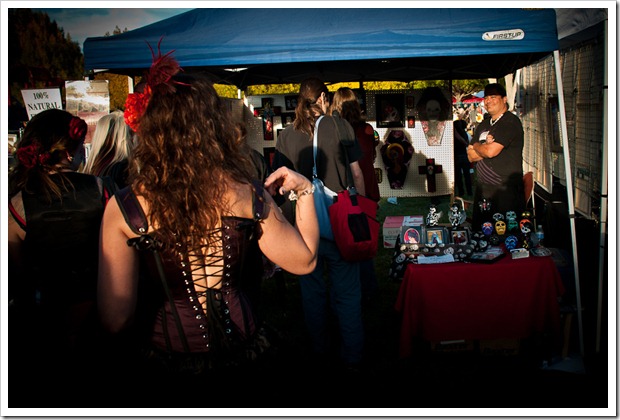Revelers and a vendor interact, if only non-verbally, after the Dia de los Muertos Parade in Albuquerque, New Mexico, November 2012
man
It’s not for me to know…
“It’s not for me to know; it’s for me to find out (discover).” This thought is what came to me as I browsed through some William Albert Allard images on the National Geographic site online. Allard, a 50 year contributor to the Geographic, is known for his incredible use of color as a compositional tool as well as his intimate stories in light other photographers wouldn’t choose to use.
What struck me as I looked at his images is how close he gets to his subjects. I’m not talking about positional distance, although he does that too. I mean how intimate the images become. It is as if he captures that essence of a moment that shows the subjects in all their three dimensional human depth. It is as if he manages to make an image from inside the subject’s defenses, from beyond the mask.
And even more, what Allard manages to capture in these images is not only the subject, but a piece of himself. And in doing so he captures a piece of me. Repeatedly I’ve found myself looking at an image thinking, “I know that feeling!” There is a piece of me in those images, and I imagine there is a piece of Allard, and of you too. That is good photography!
So why do I share all this? Well, I try to be better and better at photographing. I’m trying to learn what makes a good image and I’m trying to learn how to do it myself. A friend of mine suggested not too subtly that I not collect my own work but rather collect the good works of others. He suggested this mostly to spur along my artistic efforts, I know. And he has succeeded. So, I’ve been perusing the works of others including Allard, Steve McCurry, Larry Towell, Martin Parr, Yousuf Karsh and others. and I keep asking myself, “how did/do they do that?”
That question is not about the technical aspect of an image; I can figure that part out. It’s about the access; it’s about the edit; it’s about the moment; it’s about the intimacy; it’s about recognizing what matters out of all the uncontrollable chaos that exists in the world swirling around us all the time. And I realize, it is not for me to know by looking at others’ work; it is for me to discover – in the world, in front of my camera, in my images. These photographers managed to capture the images they did because they went seeking that intimacy. They let themselves become known and they let themselves discover others.
They got close, really close, and found that reflection of themselves in others and made an image of that. So, the question then arises, is how do I find that reflection of myself in my subjects, in the world? And show it?


